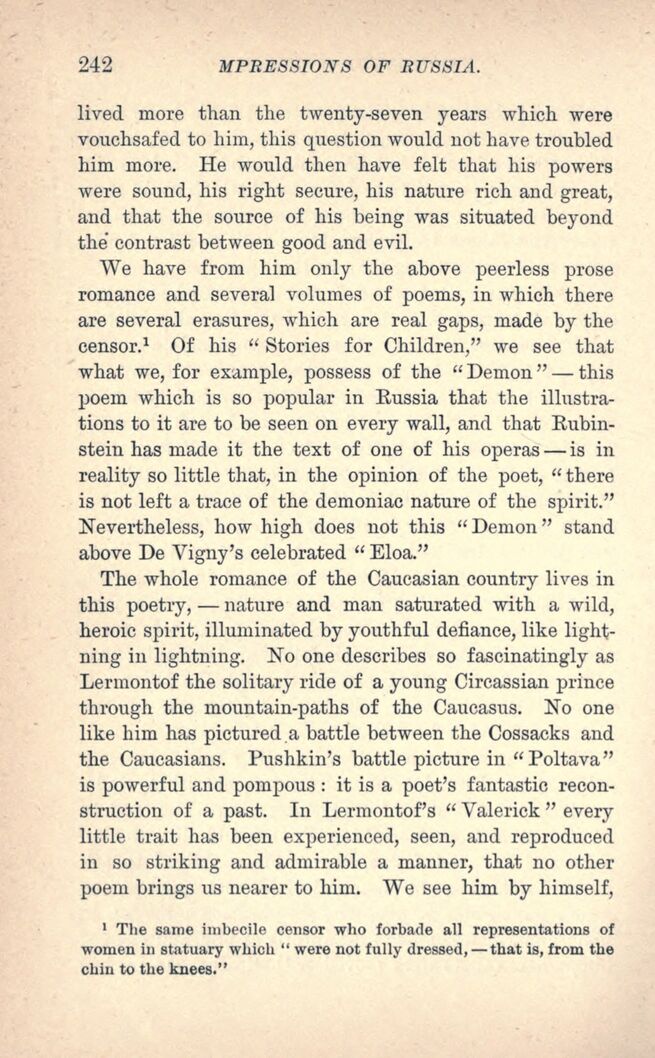
Full resolution (JPEG) - On this page / på denna sida - Impressions of Russian Literature - III

<< prev. page << föreg. sida << >> nästa sida >> next page >>
Below is the raw OCR text
from the above scanned image.
Do you see an error? Proofread the page now!
Här nedan syns maskintolkade texten från faksimilbilden ovan.
Ser du något fel? Korrekturläs sidan nu!
This page has been proofread at least once.
(diff)
(history)
Denna sida har korrekturlästs minst en gång.
(skillnad)
(historik)
lived more than the twenty-seven years which were
vouchsafed to him, this question would not have troubled
him more. He would then have felt that his powers
were sound, his right secure, his nature rich and great,
and that the source of his being was situated beyond
the contrast between good and evil.
We have from him only the above peerless prose
romance and several volumes of poems, in which there
are several erasures, which are real gaps, made by the
censor.[1] Of his “Stories for Children,” we see that
what we, for example, possess of the “Demon” — this
poem which is so popular in Russia that the illustrations
to it are to be seen on every wall, and that Rubinstein
has made it the text of one of his operas — is in
reality so little that, in the opinion of the poet, “there
is not left a trace of the demoniac nature of the spirit.”
Nevertheless, how high does not this “Demon” stand
above De Vigny’s celebrated “Eloa.”
The whole romance of the Caucasian country lives in
this poetry, — nature and man saturated with a wild,
heroic spirit, illuminated by youthful defiance, like
lightning in lightning. No one describes so fascinatingly as
Lermontof the solitary ride of a young Circassian prince
through the mountain-paths of the Caucasus. No one
like him has pictured a battle between the Cossacks and
the Caucasians. Pushkin’s battle picture in “Poltava”
is powerful and pompous: it is a poet’s fantastic
reconstruction of a past. In Lermontof’s “Valerick” every
little trait has been experienced, seen, and reproduced
in so striking and admirable a manner, that no other
poem brings us nearer to him. We see him by himself,
<< prev. page << föreg. sida << >> nästa sida >> next page >>